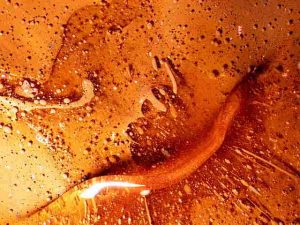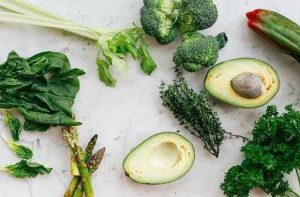Herbs de Provence Importers

Herbs de Provence Importers
Herbs de Provence Importers: Sourcing the Best of Southern France’s Flavorful Blend
Herbs de Provence—a magical mixture that instantly transports you to the warm, sunny hills of Southern France. These aromatic herbs have become a staple in kitchens worldwide, enhancing the flavors of everything from roasted chicken to grilled vegetables. But how do these flavorful bundles of herbs travel from Provence to your plate? Let’s take a closer look at the world of Herbs de Provence importers, exploring where this blend comes from, the global market, and how importers bring the essence of Provence into your kitchen.
What Are Herbs de Provence? Herbs de Provence Importers
Before we dive into the importation process, let’s define exactly what we’re talking about when we say “Herbs de Provence.”
Herbs de Provence is a fragrant blend of dried herbs that typically includes:
- Thyme
- Rosemary
- Savory
- Oregano
- Marjoram
- Basil (in some cases)
- Lavender (though this can be controversial, as traditionalists argue that lavender is not authentic to the original blend)
This combination of herbs reflects the sunny, warm climate of Provence, a region in southeastern France known for its beautiful lavender fields and Mediterranean charm. The herbs can be used to season meats, vegetables, and even soups, lending a characteristic Southern French flavor to dishes.
The Global Demand for Herbs de Provence
Herbs de Provence has gained international popularity, thanks to its versatile flavor profile and the rise of French cuisine across the globe. From home cooks to gourmet chefs, people are increasingly reaching for this aromatic blend. But for it to reach tables worldwide, there’s a complex network of Herbs de Provence importers who ensure that the product is available far beyond the borders of France.
Why Are These Herbs Imported?
Though many countries grow herbs similar to those found in Provence, the specific soil, climate, and traditional farming techniques of the region provide a unique flavor that is hard to replicate. This has led to a high demand for authentic Herbs de Provence, particularly from French suppliers. Importers play a crucial role in maintaining the authenticity of this product, ensuring that consumers get the true taste of Provence.
Read more: What Does Çeciir Taste Like?
Key Herbs de Provence Importing Regions
While it might seem like Herbs de Provence would only be imported to a few countries, the reality is that this blend has found its way into pantries around the world. Let’s take a look at some of the top regions importing this flavorful mixture:
1. United States
The U.S. has a large market for imported French herbs, with Provence’s herbal blend being a particular favorite. Health-conscious consumers and lovers of Mediterranean cuisine look for authentic products, and many importers cater to this demand by sourcing directly from Provence. Specialty stores, online retailers, and even high-end grocery chains are among the leading distributors.
2. Canada
Canada also sees significant demand for Herbs de Provence. Much like in the U.S., importers focus on authenticity, bringing in herbs from French suppliers who guarantee high-quality products. Canadian consumers are keen on organic and naturally sourced herbs, and Provence-grown herbs fit the bill perfectly.
3. United Kingdom
As a country known for its passion for fine dining and culinary experimentation, the UK has become a major importer of Herbs de Provence. With a strong focus on gastronomy, many importers in the UK have direct relationships with herb producers in Provence, ensuring the highest quality product makes its way to UK shelves.
4. Australia
Down under, the demand for Herbs de Provence is growing. Australia’s food culture has become increasingly global, and importers are keen to stock their shelves with these aromatic herbs to cater to the nation’s expanding appetite for international cuisine.
How Do Importers Source Herbs de Provence?
The process of importing Herbs de Provence is more complex than simply placing an order and receiving a shipment of herbs. Let’s break down the steps that importers typically follow to bring these aromatic blends to international markets:
1. Establishing Supplier Relationships
The first step in importing Herbs de Provence is finding the right suppliers. This typically involves working with farmers or producers in the Provence region, who grow and harvest the herbs. Some importers prefer working with small, family-owned farms to ensure high-quality, organic herbs.
2. Quality Control
Before herbs are imported, they must pass through a rigorous quality control process. Herbs de Provence importers often work with their suppliers to ensure that the herbs meet specific standards, such as being free from pesticides or artificial additives. The taste, aroma, and appearance of the herbs are also inspected before they’re shipped.
3. Import Regulations
Different countries have different regulations for importing food products, and herbs are no exception. Importers must navigate customs, comply with food safety regulations, and ensure that the herbs are packaged and labeled according to the destination country’s standards. For example, organic certifications may be required in some regions, and importers must work with their suppliers to ensure these standards are met.
4. Distribution Channels
Once the herbs have successfully cleared customs, they need to make their way to consumers. Importers typically distribute the herbs through several channels:
- Retail Stores: Both specialty and general grocery stores.
- Online Retailers: Platforms like Amazon, which offer convenient shipping options.
- Restaurants and Chefs: Importers often supply bulk orders of Herbs de Provence to gourmet restaurants and chefs looking to elevate their cuisine.
Top Herbs de Provence Importers Around the Globe
While many small-scale importers focus on niche markets, there are a few major players that have gained prominence in the global import scene:
- Société Provençale d’Aromates – One of the largest suppliers of Herbs de Provence, this French company exports its herbs globally, ensuring a steady supply of authentic Provencal flavors.
- Terre Exotique – Known for its high-quality herbs and spices, Terre Exotique exports to many countries and maintains a reputation for sourcing the finest herbs.
- Frontier Co-op – A U.S.-based cooperative, Frontier Co-op sources herbs from Provence to meet the demand for organic and fair-trade products in the U.S. market.
- The Spice House – Another U.S.-based importer, The Spice House imports Herbs de Provence directly from France and offers them in gourmet spice blends.
Challenges Faced by Importers
While Herbs de Provence importers work hard to bring the finest products to market, they face several challenges:
- Weather Conditions: Since herbs depend heavily on the weather, an unusually wet or dry season in Provence can affect the quality and yield of the herbs.
- Fluctuating Demand: The demand for imported herbs can vary, especially when global trends in cooking change. For example, the rise of new cuisines might temporarily overshadow French flavors.
- Sustainability Concerns: More consumers are looking for sustainably sourced products, and importers must ensure that the farms they work with practice responsible agriculture.
Conclusion: Bringing the Taste of Provence to You
Herbs de Provence offer a little slice of France wherever they are enjoyed. Importers play an integral role in ensuring the quality and authenticity of this beloved blend. From navigating regulations to building relationships with trusted suppliers, these importers allow us to experience the unique flavors of Provence, no matter where we are in the world.
So next time you sprinkle Herbs de Provence on your roast chicken or vegetables, take a moment to appreciate the journey those herbs took—from the sun-soaked fields of Provence to your kitchen.





